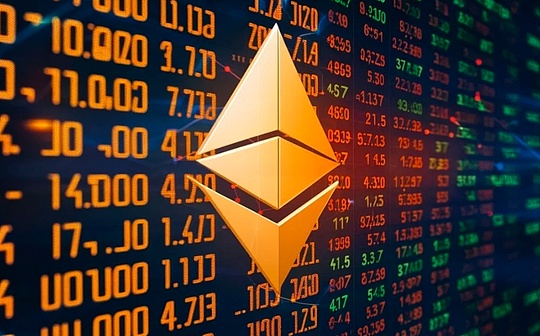
Author: francesco Source: X, @francescoweb3 Translation: Shan Oppa, Bitchain Vision
Ethereum has been at a crossroads for the past few years.The growing voice of criticism has prompted the Foundation to change leadership and hope to drive wider scrutiny, increase transparency and engagement, while focusing on value capture at the L1 level.
In the past, it was difficult to see executive directors frequently appear in multiple forums at the Ethereum conference.I’m glad to see this week@tkstanczakGet involved in as many activities and discussions as possible.This new atmosphere is refreshing and may be a signal of future trends.So… this article summarizes the vision of Ethereum.
Vision and Goals
To form a structured vision, the goal must be clarified first.
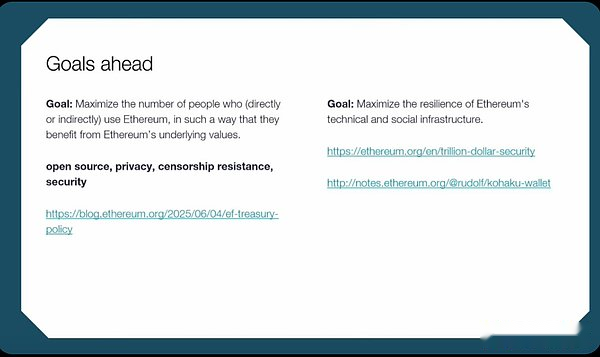
Ethereum’s main goals include:
1. Regain the spirit of encryption——How to protect privacy and trustworthiness.
This is not only to attract new users, but also to ensure that they can use these values and ideas to build and develop based on it.We must build, but we must have purpose and values.
2. Ensure that Ethereum remains the safest and most resilient blockchain infrastructure
This is related to Vitalik’s proposed “trillion dollar security.”It is part of a broader security discussion:
The most important thing is:
How to ensure that all technological developments continue to adhere to Ethereum’s core concepts and values—no shortcuts or compromises.
-
How to improve the security of Ethereum?
-
How to fully convey this to users?
-
How can institutions and users take advantage of this security?
Recently, many people have criticized Ethereum for being somewhat distant from builders.But it seems that this is about to change.In fact, we can expect the Ethereum Foundation to take a more positive attitude and launch a new treasury policy.According to Thomas, this policy will be used to find efficient and lasting DeFi protocols and to conduct strategic funding allocations—from a passive model to a guided model.
This is just one of a series of challenges that will impact Ethereum’s long-term future, including:
-
Brilliant regulation
-
AI adoption
-
Privacy Issues
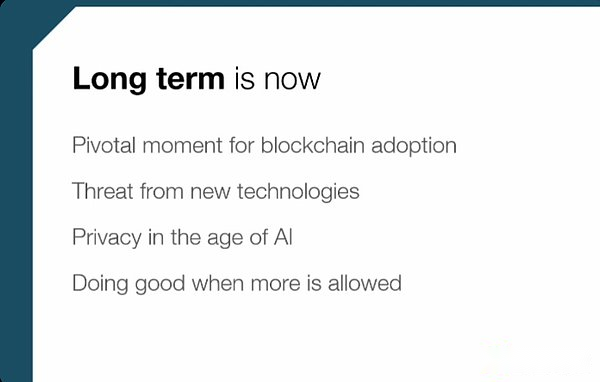
Among these challenges, a major recent trend is the increase in institutional adoption.
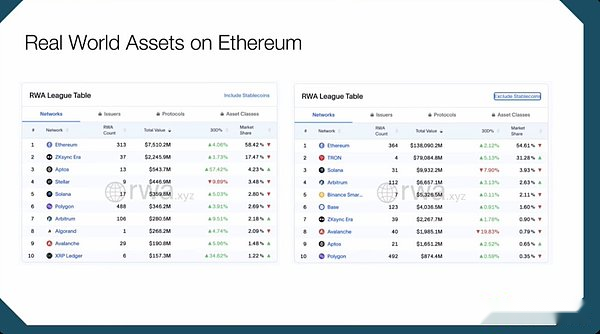
Ethereum’s future vision is to split its business into modular components in multiple areas, open source and remove intermediaries.
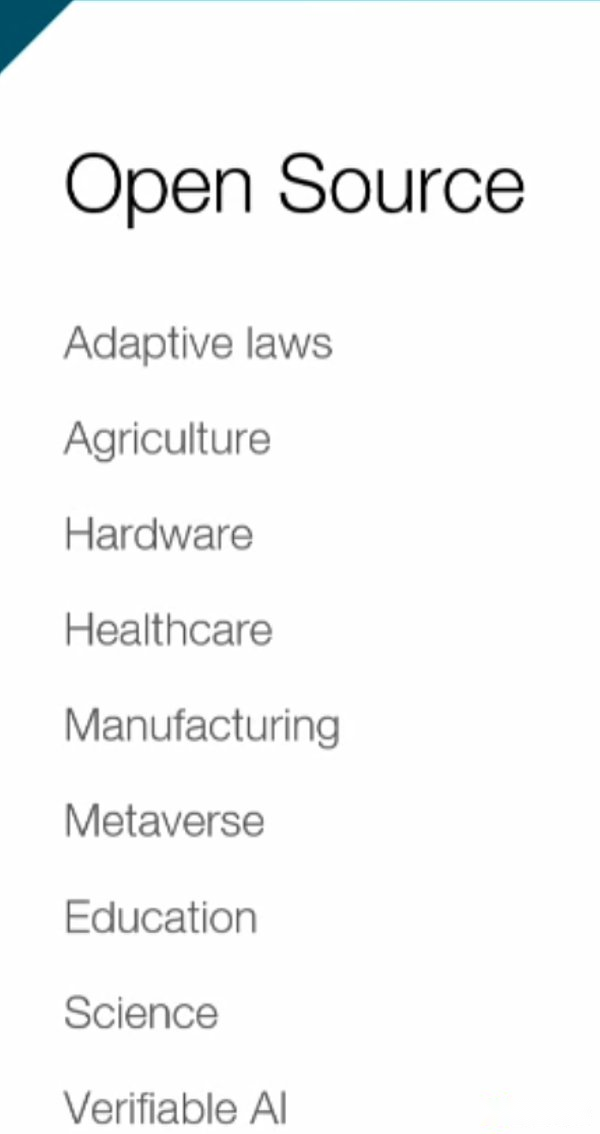
These modules will ensure a smooth transition from Web2 to Web3, reducing the friction costs of the organization.Imagine that health agencies in different countries can jointly open and contribute a health data repository.All of this ensures security and verifiability through interactions on the ETH chain.What is the ultimate goal?Allow users to trade assets around the world on the chain.
challenge
However, to realize this vision, Ethereum must address some of the core challenges and confusions faced by users.
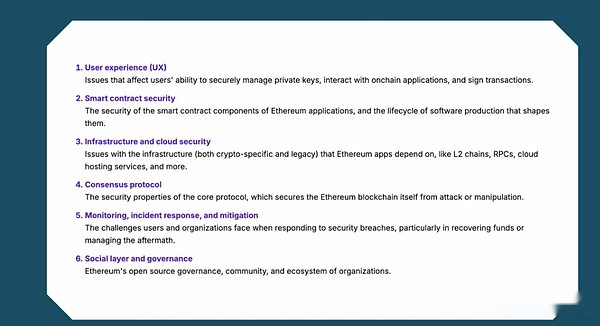
Therefore, one of the key points in the future will be to deal with the key issues of on-chain privacy and identity and to build ETH intoTrusted layer of AI executionTo deal with the threats brought by artificial intelligence.
——Trusted and neutral
——Globalization
——Designed private and secure
These goals will lead to a diversified ecosystem, forming a social structure that allows different participants to collaborate, and the ultimate goal is to make Ethereum aAnti-fragile network.
To truly resist centralization, global participation must be ensured and a variety of voices and methods are incorporated into the construction process to create a truly global network.
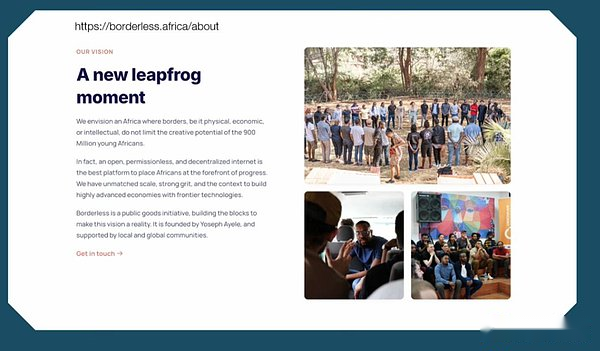
This will enable ETH to listen to the needs that really matter and empower diversity and diversity.It’s also refreshing, aboutThe relationship between L1 and L2, the Ethereum Foundation has made it clear that there is no opposition between the two.Instead, ETH will be more proactive in guiding L2 how to enter smoothlyStage 2, and use ETH as a security guarantee to protect users at the bottom.
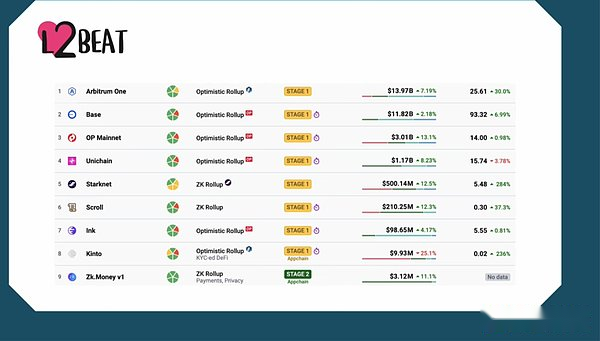
In addition, we also sawReal-time blockchain(such as MegaETH) and other high-speed networks (such as Monad, Hyperliquid).
This brings up the problem of interoperability and integration:
-
How to make sure they can connect to the Ethereum mainnet?
-
How to build25 millisecond block timeAnd a blockchain that inherits ETH security parameters?
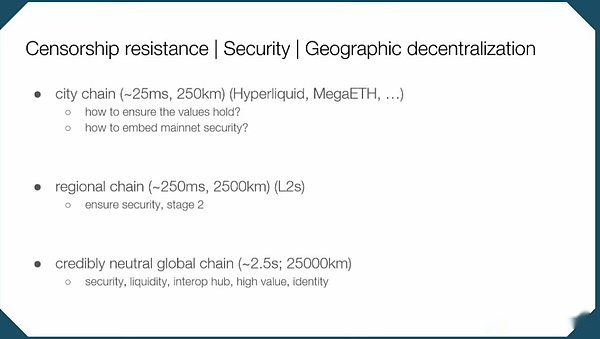
Therefore, new tools need to be introduced to validate the hierarchy of these new challenges and ensure that clients can integrate with these networks.This is also forClient DevelopmentOpened up new creative space.
Currently, all ETH client teams have agreed to limit gas caps for each block from45m Raise to 60mand plans to reach the end of this year or the first quarter of next year100m.
Internal restructuring will drive this goal, with the modular team working around a common goal:
-
Extended L1
-
Extended blobs
-
Improve user experience
-
Improve interoperability
That’s right,Extended L1(This area that has been relatively neglected before) is also among the targets.
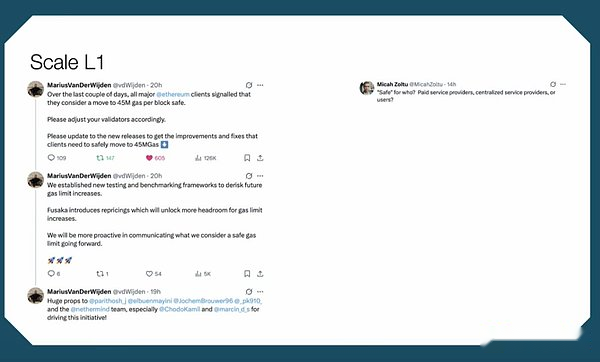
Can we really say that?
Watch the long ETH——I personally welcome this “awakening” and look forward to it continuing to advance.







